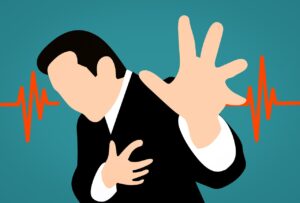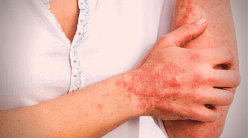What Is An Arrhythmia
Cardiac arrhythmia, also known as arrhythmia or heart arrhythmia is a group of conditions in which the heartbeat is irregular. In the case of arrhythmia, it beats too fast or too slow. 100 beats per minute or more is called tachycardia and beats below 60 are called bradycardia.
Types Of Heart Arrhythmias
There are four main types of arrhythmia: supraventricular tachycardias, ventricular arrhythmias, extra beats, and bradyarrhythmias.
Heart Arrhythmias Causes
Several factors can lead to, or cause an arrhythmia, including:
- Smoking
- Drug abuse
- Drinking Too Much Alcohol Or Caffeine
- Diabetes
- High Blood Pressure
- Stress Or Anxiety
- Heart Disease ( congestive heart failure,…)
- Blocked Arteries
- Structural Changes In The Heart ( from cardiomyopathy,…)
- Hyperthyroidism, or overactive thyroid gland
- Hypothyroidism, or underactive thyroid gland
- Sleep apnea
- Genetics
- Some Medications And Supplements
Cardiac Arrhythmia Symptoms
The most common symptom of arrhythmia is an abnormal heartbeat called palpitations. Some of these arrhythmias are harmless but some of them predispose to adverse outcomes. Some arrhythmias don’t cause symptoms but some asymptomatic arrhythmias are associated with adverse events. Cases include a higher risk of blood clotting within the heart and a higher risk of insufficient blood being transported to the heart because of the weak heartbeat. Other increased risks are embolization and stroke, heart failure, and sudden cardiac death. Some types of disease include cardiac arrest or sudden death.

Heart Arrhythmia Treatment
Most arrhythmias can be treated effectively. This disease affects millions of people and may occur at any age, but are most common among older people. Treatment may include medications, peacemaker, and surgery.
Wanna Learn More About Arrhythmia And Natural Remedies For Arrhythmia? Click Here
Reference:
- Wikipedia
Disclaimer: All information presented on this website is for informational purposes only. These statements have not been evaluated by the Food and Drug Administration. This website is not intended for diagnosis, treatment, treatment or prevention of disease and is not intended for substitution treatment. This information is not meant to cover all possible uses, precautions, interactions or adverse effects. This information may not fit your specific health circumstances. Never delay or disregard seeking professional medical advice from your doctor or other qualified healthcare providers because of something you have read on whatcure.com. Please seek the advice of a healthcare professional for your specific health concerns.







